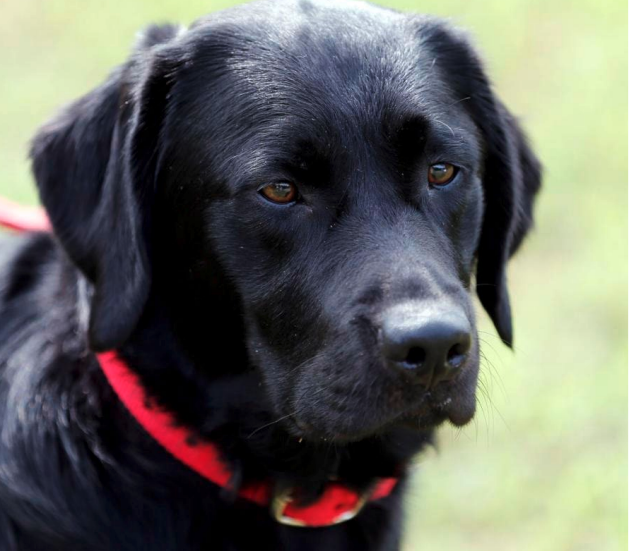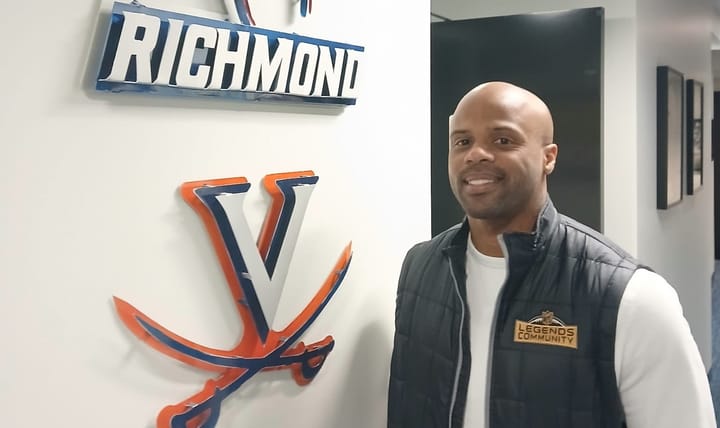
Richmond medical marijuana company among seven businesses suing state over lucrative cannabis license
A medical marijuana company with a Richmond presence is one of seven businesses suing the Virginia Cannabis Control Authority over a coveted license to grow and dispense medical cannabis in the northwestern region of the state.
This September, the authority granted conditional approval for the license to AYR Virginia, a subsidiary of the Miami-based AYR Wellness, which operates dispensaries in eight states.
Now multiple companies are challenging that decision in Richmond Circuit Court on the grounds that the Cannabis Control Authority unlawfully used what one lawyer has called “a tainted lottery conducted by, literally, a website called Random.org,” didn’t consistently use its own criteria in evaluating applications and didn’t follow state transparency and administrative process laws.
“It is demonstrably in the public interest that the award of the lone pharmaceutical processor permit be awarded only after completion of a genuinely competitive bidding process by the authority,” wrote unsuccessful applicant VMCC Wellness in its complaint.
Among the litigants are TheraTrue Virginia, the Richmond-based outpost of a medical marijuana business that also operates in Georgia and Florida. Along with 20 of its affiliates that also applied for the license, the company argues the authority’s decision-making process was “arbitrary, capricious, and not in accordance with Virginia law.”
Other applicants meanwhile say the application system incentivized TheraTrue to flood the applicant pool with affiliates of itself in an unsuccessful effort to tilt the lottery in its favor.
“This effectively turned any lottery into a raffle, in which applicants could increase their odds by simply filing more applications and paying the $18,000 filing fee,” wrote Blue Ridge Medical and Pure Virginia in their lawsuits.
Asked about the lawsuits, VCCA Acting Head Jeremy Preiss said that “the Cannabis Control Authority does not comment on pending litigation.”
TheraTrue did not respond to inquiries from The Richmonder. AYR Wellness spokesperson Robert Vanisko said that "we believe that there is no basis to overturn the award and plan to vigorously defend our conditional license. We look forward to serving the patients in Health Service Area 1, a region of ~1.5 million people who have already waited too long for access to medical cannabis."
A prize for medical cannabis providers
All the lawsuits filed in Richmond Circuit this November center on a pharmaceutical processor permit that gives one company the right to grow, process and dispense all medical cannabis in Health Service Area 1, a region that stretches from the Shenandoah Valley east into Charlottesville and Fredericksburg.
Virginia’s medical marijuana laws divide the state into five such health service areas, with a single company holding the pharmaceutical processor permit for each. That regional monopoly makes the license a lucrative prize for cannabis companies eager to get a toehold in Virginia, where it’s legal for individuals to possess small amounts of marijuana for personal use but no commercial market exists.
Richmond is in HSA 4, where the permit belongs to The Cannabist Company, which operates gLeaf and Cannabist stores in the area.
Unlike the rest of the state, HSA 1 has never had an operating pharmaceutical processor. The State Board of Pharmacy — which previously oversaw Virginia’s medical marijuana program — awarded PharmaCann Virginia the conditional permit in 2018. But the board rescinded it in 2020 after the company failed to make progress toward constructing the facilities it needed to operate.
The company lost its last appeal before the Virginia Court of Appeals in April 2023, clearing the way for the state to choose another processor.
Before taking over management of the state’s medical marijuana program in January 2024, the Virginia Cannabis Control Authority called awarding the HSA 1 license one of its “highest priorities.”
A 33-competitor lottery
Forty companies applied for the HSA 1 permit earlier this year. Thirty-three of those — including all 21 TheraTrue companies — were declared finalists, with a rounded score of 8 out of 16 possible points.
Because all the finalists were considered to have tied for the highest-ranked score, a five-person review committee under the Virginia Cannabis Control Authority conducted a lottery this September to award the conditional permit and ultimately selected AYR.
That approach, said VMCC Wellness in its suit, was “a dramatic departure” from the prior system used by the Board of Pharmacy to award licenses, which judged applicants on a 275-point scale, weighted various criteria considered and used no lottery.
“Rather than putting the applicants’ materials — or any relevant applicant information — to the Board, the Review Committee threw its hands up and chose, instead, to break the 33-way tie with, of all things, a lottery,” wrote applicants Trulieve VA and Natures VA in their petition, noting the lottery was conducted through “the ‘Random.org’ lottery website (seriously).”
“No reasonable competitive agency scoring process, particularly with respect to a highly regulated industry, should result in a 33-way tie,” they concluded.
Several of the companies argue the 16-point scoring system made multiple tied scores and a lottery virtually inevitable, contrary to state law and regulation directing that the permit should be awarded through a competitive process.
“The entire process was likely to result in a flat and undifferentiated field of applicants, leading to a potential lottery,” wrote Blue Ridge Medical and Pure Virginia in their suits.
The approach also, said numerous litigants, encouraged companies to submit numerous applications through affiliates in what VMCC Wellness described as “a ‘flood the zone’ tactic that arbitrarily advantaged the parent company which submitted the most applications, regardless of the relative merit.”
In a Q&A document compiled during the open application period, the Cannabis Control Authority told applicants that “while submitting multiple entries is not consistent with the spirit of the application process, and the CCA does not encourage the practice, the CCA does not have the legal authority to prohibit multiple entities that share the same ownership from submitting multiple applications.”
Scoring complaints
TheraTrue, the company that with its affiliates submitted 21 applications, is not challenging the use of the lottery in its suit. Instead, it is one of several companies to argue that the scoring process was inconsistent and sloppy.
Among TheraTrue’s allegations are claims that winning applicant AYR failed to submit required documentation that a proposed facility wouldn’t be within 1,000 feet of a school or day care or the names of individuals, rather than companies, who had more than a 5% stake in the business.
Because state law prohibits anyone with a felony record from being legally involved in a pharmaceutical processor, the Cannabis Control Authority conducts criminal background checks on the owners of winning applicants.
“There is no evidence that AYR ever disclosed any further ownership information that would allow the CCA to conduct the required level of background checks prior to granting conditional approval,” TheraTrue wrote in its lawsuit.
Meanwhile, several other applicants claim that the review committee considered disqualifying TheraTrue entirely from the process after a member of the Shenandoah Valley Partnership contacted the authority to complain the company was erroneously claiming to have his endorsement.
Other companies contend that the eight factors the review committee used to evaluate the applicants were so broad and vague that they offered no baseline against which applications could be judged, instead leaving the decision up to each individual scorer. And while application guidelines specified that any applicant that received a score of zero in any category should be disqualified, Trulieve VA and Natures VA said nearly all of them received at least one zero from a scorer and still were included in the lottery.
“The overall evaluation appeared to be driven by the subjective opinions of members of the Review Committee,” they wrote.
Transparency and administrative process flaws
Finally, several of the applicants are arguing that the Cannabis Control Authority’s process violated the Virginia Freedom of Information Act and Virginia Administrative Process Act.
Among their primary complaints is that no one was provided notice for when the lottery would occur, no record of the decision-making process was compiled, and none of the review committee’s deliberations — or the lottery itself — occurred in public.
“The Review Committee, as an advisory body of the CCA Board, was subject to [the Freedom of Information Act’s] open meetings requirements. Because the Review Committee had two CCA Board members, this also would implicate the open meetings law's requirements for the Review Committee,” wrote Blue Ridge Medical and Pure Virginia.
However, they continued, “the Review Committee never noticed any of its meetings, held no public votes or deliberation, and failed to follow any of the notice requirements.”
While the Cannabis Control Authority did not publicly release the names of review committee members, Trulieve VA and Natures VA, citing a Freedom of Information Act request, list them as Preiss, CCA board members Bette Brand and Anthony Williams, CCA Finance Director Wendy Hupp and CCA Health Policy and Data Manager Brianna Bonat.
This story has been updated with a comment from AYR Wellness.






